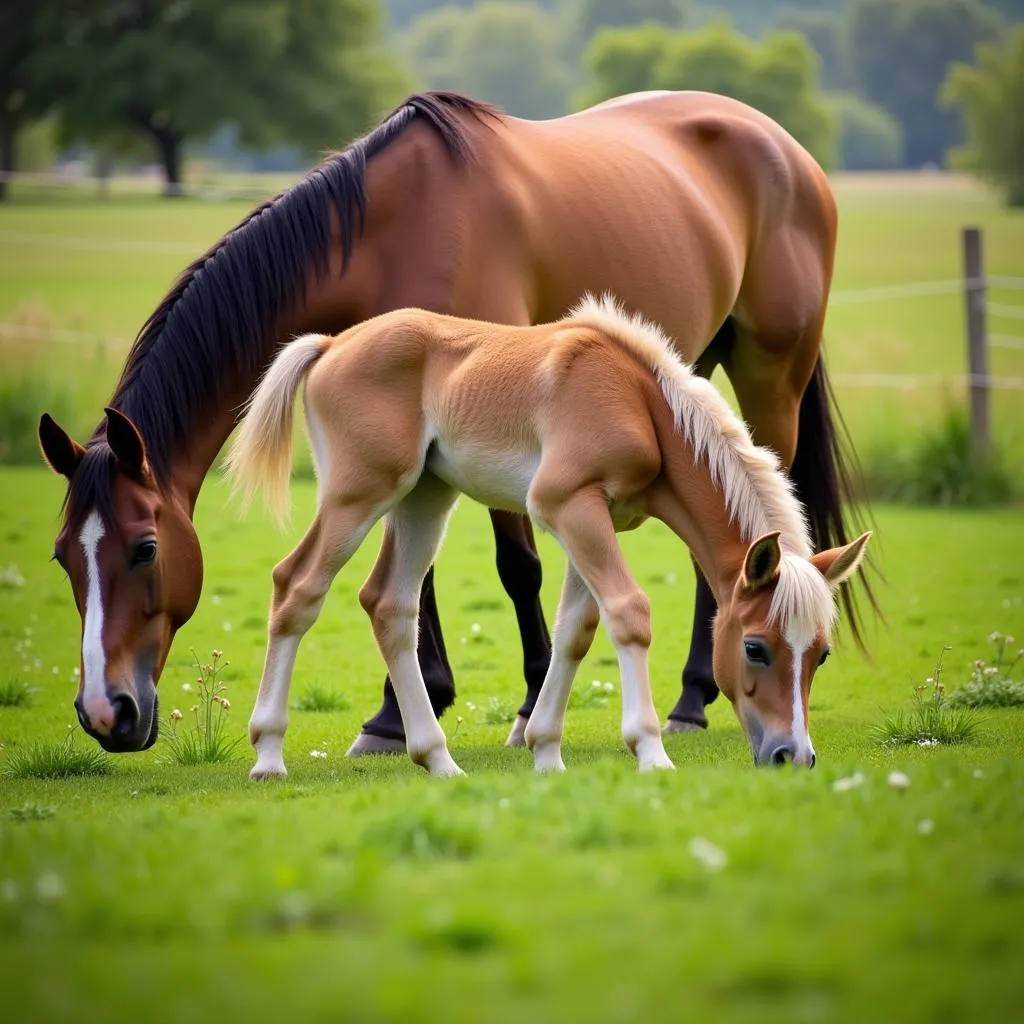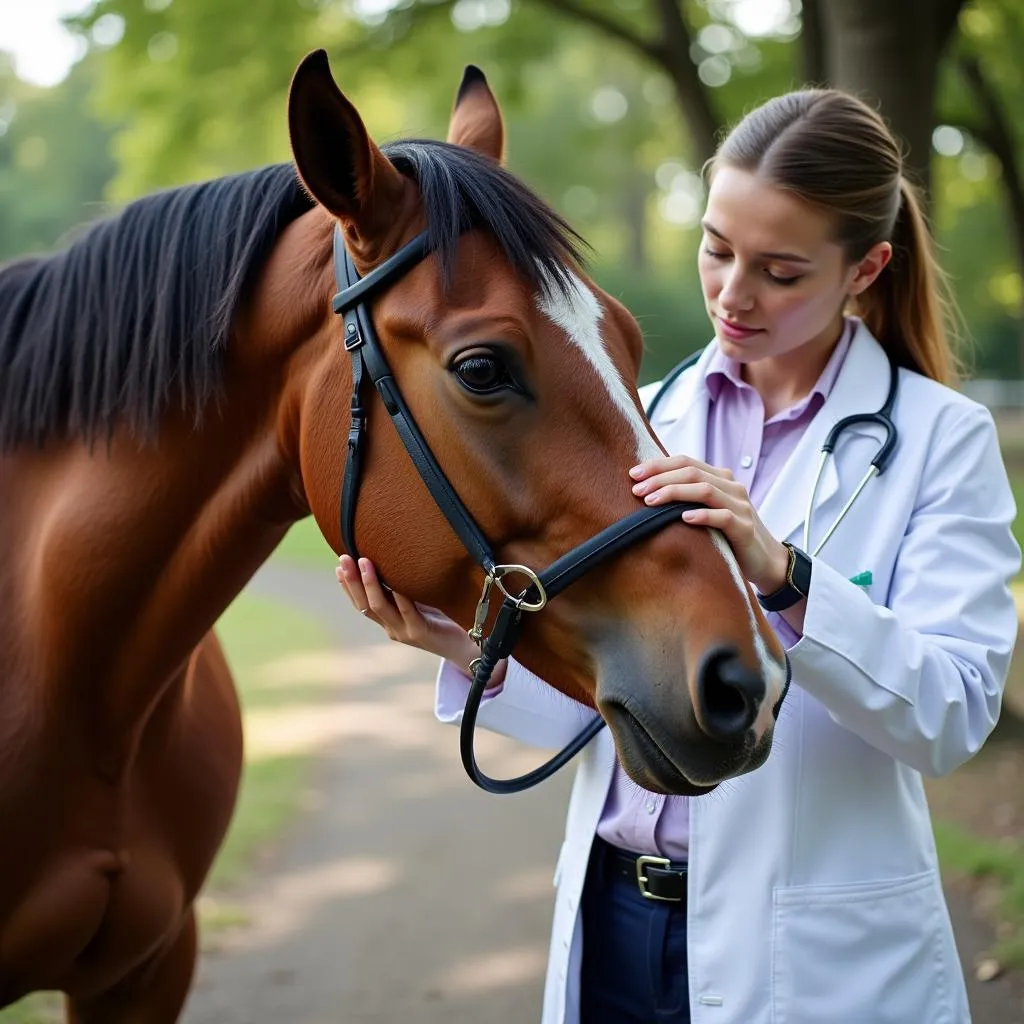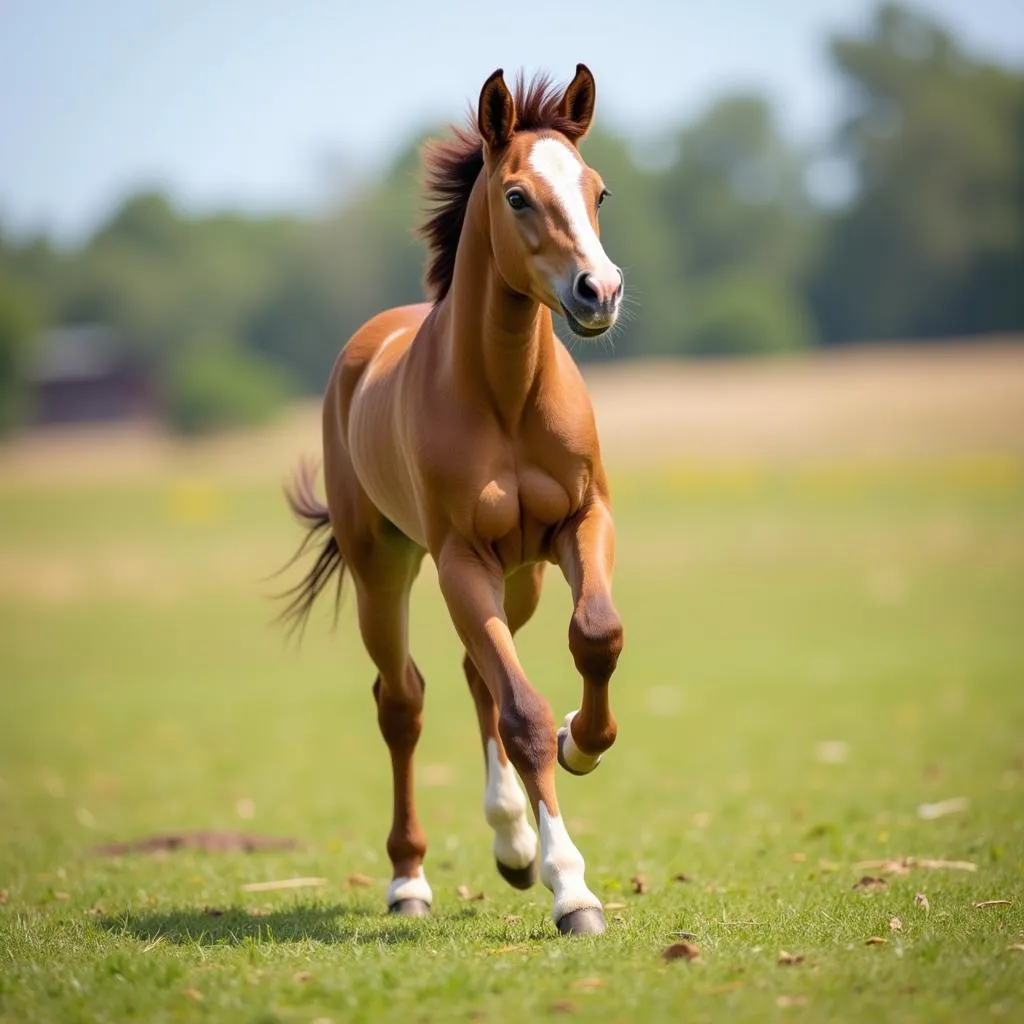Arabian Horse Breeding is more than just producing foals; it’s an art form dedicated to preserving the legacy, beauty, and spirit of one of the oldest and most beloved horse breeds in the world. For centuries, Arabian horses have captivated hearts with their striking appearance, intelligence, and unwavering loyalty. Whether you’re an experienced breeder or just starting your journey, this guide delves into the intricacies of Arabian horse breeding, providing valuable insights to ensure the wellbeing of your horses and the success of your breeding program.
 Arabian horse mare and foal grazing in a pasture
Arabian horse mare and foal grazing in a pasture
Understanding the Arabian Breed Standard
Before embarking on your breeding journey, a deep understanding of the Arabian breed standard is crucial. This goes beyond admiring their beauty; it involves recognizing the specific physical traits and temperaments that define the breed.
Physical Characteristics
- Head: The Arabian horse is renowned for its distinctive dished face, large expressive eyes, and small, finely chiseled muzzle.
- Neck: A long, arched neck that flows gracefully into the shoulders is a hallmark of the breed.
- Body: Arabians are relatively compact, with a short back, strong hindquarters, and a naturally high tail carriage.
- Legs and Hooves: Fine-boned legs with dense, solid hooves known for their soundness.
Temperament and Intelligence
- Intelligence: Arabian horses are highly intelligent, quick learners, and known for their willingness to please, making them suitable for a variety of disciplines.
- Sensitivity: While their intelligence is an asset, it also makes them sensitive animals. They respond best to gentle, consistent training methods.
- Loyalty: Arabians form strong bonds with their human companions and are known for their loyalty and affectionate nature.
Selecting the Right Breeding Pair
 Veterinarian conducting a thorough health check on an Arabian horse
Veterinarian conducting a thorough health check on an Arabian horse
Choosing the right mare and stallion is the cornerstone of successful Arabian horse breeding. This process involves careful consideration of pedigree, conformation, temperament, and the potential genetic compatibility of the pair.
- Pedigree Research: Analyzing the pedigree of both the mare and stallion can provide insights into potential strengths and weaknesses in conformation, health, and temperament that may be passed down to offspring.
- Conformation Assessment: Evaluating the physical structure and balance of both horses is essential. Look for horses that closely align with the Arabian breed standard.
- Temperament Evaluation: A calm, tractable temperament is highly desirable in both the mare and stallion. Observe their behavior and interactions to ensure compatibility.
- Genetic Testing: Advancements in equine genetics allow breeders to screen for potential genetic disorders and ensure the healthiest foals possible.
The Arabian Horse Breeding Process
- Live Cover: The traditional method, live cover involves allowing the stallion and mare to interact naturally in a controlled environment.
- Artificial Insemination (AI): AI allows breeders to use semen from stallions located anywhere in the world, expanding genetic options and facilitating breeding management.
- Embryo Transfer: A more advanced technique, embryo transfer involves fertilizing an egg from a donor mare with stallion semen and then transferring the resulting embryo into a recipient mare.
Caring for the Pregnant Mare and Foal
 An Arabian horse foal playfully runs in a spacious pasture
An Arabian horse foal playfully runs in a spacious pasture
- Nutrition: Pregnant and lactating mares require a higher plane of nutrition to support the developing foal and subsequent milk production.
- Veterinary Care: Regular veterinary checkups are essential throughout the pregnancy to monitor the mare’s health and the foal’s development.
- Foaling Preparation: Create a clean, safe, and well-bedded foaling area for the mare to give birth.
- Neonatal Care: Once the foal is born, ensure it receives colostrum within the first few hours of life to provide essential antibodies.
Arabian Horse Breeding: A Legacy of Excellence
Arabian horse breeding is a rewarding but demanding endeavor. By understanding the breed standard, carefully selecting breeding pairs, and providing exceptional care for your horses, you contribute to preserving the extraordinary legacy of the Arabian horse for generations to come. Remember, responsible breeding practices prioritize the well-being of the horses and contribute to the overall betterment of the breed.
FAQ
Q: How long is the gestation period for an Arabian horse?
A: The gestation period for an Arabian horse is approximately 11 months, but it can vary slightly.
Q: Are Arabian horses suitable for first-time owners?
A: While Arabians are intelligent and willing to please, their sensitivity and energy may be better suited for experienced horse owners who can provide consistent training and handling.
Q: What are some common health concerns in Arabian horses?
A: Like all breeds, Arabians are susceptible to certain health conditions. Some common concerns include genetic disorders, laminitis, and eye problems.
Need Assistance?
Our team at Justus Horses USA is here to support you every step of the way. Whether you have questions about Arabian horse breeding, need guidance on horse care, or are looking for your next equine partner, please don’t hesitate to reach out.
Contact us:
Phone: 0772127271
Email: [email protected]
Address: QGM2+WX2, Vị Trung, Vị Thuỷ, Hậu Giang, Việt Nam
We have a dedicated customer support team available 24/7.